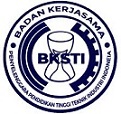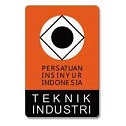Analytical Study of Trends in Measuring Sustainability Performance and Indexes
Abstract
Sustainability was a crucial underpinning for addressing and mitigating the impacts of climate change. It was not only considered a moral responsibility but also a key element in building a sustainable future. The measurement of sustainability index and performance played a very important role in various sectors because it provided an objective basis for evaluating the economic, social, and environmental impacts of a company or organization's activities. Various sectors needed to play a key role through the implementation of integrated sustainability activities, including efforts to reduce pollution, utilize resources efficiently, increase engagement with communities as stakeholders, and ensure sustainable economic progress. This study aimed to explore and analyze the trend of measuring sustainability index and performance that were developing from various relevant literature through a systematic literature review. The method used in this study was a systematic literature review by adopting the PRISMA-P stages. The PICOS Framework was used in compiling inclusion and exclusion criteria. The PRISMA-P 2020 protocol was employed in the screening process, and VOSviewer was used in the bibliometric analysis. Based on the analysis, it was concluded that research related to sustainability in the higher education and construction project sectors was important to explore further. The most popular method used was the mixed method, while observation and questionnaires were the most widely used data collection methods.
Keywords: sustainability, index measurement, performance measurement, systematic literature review.
Full Text:
PDFReferences
C. A. Adams, S. Muir, and Z. Hoque, “Measurement of sustainability performance in the public sector,” Sustainability Accounting, Management and Policy Journal, vol. 5, no. 1, pp. 46–67, 2014, doi: 10.1108/SAMPJ-04-2012-0018.
A. Trianni, E. Cagno, A. Neri, and M. Howard, “Measuring industrial sustainability performance: Empirical evidence from Italian and German manufacturing small and medium enterprises,” J Clean Prod, vol. 229, pp. 1355–1376, Aug. 2019, doi: 10.1016/j.jclepro.2019.05.076.
S. Nur Maulidina, N. Matondang, and M. S. Tryana, “Sustainable Development in Agricultural and Food Supply Chains (Case Study: Coffee Supply Chain in Karo Regency),” Jurnal Teknik Industri, vol. 14, no. 1, pp. 57–65, 2024, doi: 10.25105/jti.v14i1.19711.
A. Kumar, S. K. Shrivastav, A. K. Shrivastava, R. R. Panigrahi, A. Mardani, and F. Cavallaro, “Sustainable Supply Chain Management, Performance Measurement, and Management: A Review,” Mar. 01, 2023, MDPI. doi: 10.3390/su15065290.
M. S. Islam, M. L. Tseng, and N. Karia, “Assessment of corporate culture in sustainability performance using a hierarchical framework and interdependence relations,” J Clean Prod, vol. 217, pp. 676–690, Apr. 2019, doi: 10.1016/j.jclepro.2019.01.259.
P. Wicher, F. Zapletal, and R. Lenort, “Sustainability performance assessment of industrial corporation using Fuzzy Analytic Network Process,” J Clean Prod, vol. 241, Dec. 2019, doi: 10.1016/j.jclepro.2019.118132.
A. T. Mengistu and R. Panizzolo, “Metrics for measuring industrial sustainability performance in small and medium-sized enterprises,” International Journal of Productivity and Performance Management, vol. 73, no. 11, pp. 46–68, 2023, doi: 10.1108/IJPPM-04-2022-0200.
W. C. Lucato, J. C. da S. Santos, and A. P. T. Pacchini, “Measuring the sustainability of a manufacturing process: A conceptual framework,” Sustainability (Switzerland), vol. 10, no. 1, Jan. 2018, doi: 10.3390/su10010081.
Y. R. Kim, A. Liu, and A. M. Williams, “Competitiveness in the visitor economy: A systematic literature review,” Tourism Economics, vol. 28, no. 3, pp. 817–842, May 2022, doi: 10.1177/13548166211034437.
R. S. Siregar, R. A. Hadiguna, I. Kamil, N. Nazir, and N. Nofialdi, “Ginger (Zingiber officinale R.) as a Potent Medicinal Plant for the Prevention and Treatment of Diabetes Mellitus: A Review,” 2022, Faculty of Pharmacy, University of Benin. doi: 10.26538/tjnpr/v6i4.2.
M. J. Page et al., “The PRISMA 2020 statement: An updated guideline for reporting systematic reviews,” Mar. 29, 2021, BMJ Publishing Group. doi: 10.1136/bmj.n71.
B. M. Sopha, D. M. Purnamasari, and S. Ma’mun, “Barriers and Enablers of Circular Economy Implementation for Electric-Vehicle Batteries: From Systematic Literature Review to Conceptual Framework,” Sustainability (Switzerland), vol. 14, no. 10, May 2022, doi: 10.3390/su14106359.
A. Ijadi Maghsoodi, A. E. Torkayesh, L. C. Wood, E. Herrera-Viedma, and K. Govindan, “A machine learning driven multiple criteria decision analysis using LS-SVM feature elimination: Sustainability performance assessment with incomplete data,” Eng Appl Artif Intell, vol. 119, Mar. 2023, doi: 10.1016/j.engappai.2022.105785.
M. Zhang, Q. Yan, W. Li, G. Tang, and H. Lin, “Sustainability performance assessment of photovoltaic coupling storage charging stations with novel multi-criteria decision-making technique,” International Journal of Electrical Power and Energy Systems, vol. 142, Nov. 2022, doi: 10.1016/j.ijepes.2022.108301.
S. Rajabi, S. El-Sayegh, and L. Romdhane, “Identification and assessment of sustainability performance indicators for construction projects,” Environmental and Sustainability Indicators, vol. 15, Sep. 2022, doi: 10.1016/j.indic.2022.100193.
H. Bashir, Z. C. Araci, K. Obaideen, and I. Alsyouf, “An approach for analyzing and visualizing the relationships among key performance indicators for creating sustainable campuses in higher education institutions,” Environmental and Sustainability Indicators, vol. 19, Sep. 2023, doi: 10.1016/j.indic.2023.100267.
A. Moghayedi and B. Awuzie, “Towards a net-zero carbon economy: A sustainability performance assessment of innovative prefabricated construction methods for affordable housing in Southern Africa,” Sustain Cities Soc, vol. 99, Dec. 2023, doi: 10.1016/j.scs.2023.104907.
A. Saihi, M. Ben-Daya, and R. As’ad, “A hierarchical component model for sustainable performance measurement of maintenance practices: A fourth-order PLS-SEM approach,” Comput Ind Eng, vol. 185, Nov. 2023, doi: 10.1016/j.cie.2023.109699.
K. Shanmugam, V. Gadhamshetty, M. Tysklind, D. Bhattacharyya, and V. K. K. Upadhyayula, “A sustainable performance assessment framework for circular management of municipal wastewater treatment plants,” J Clean Prod, vol. 339, Mar. 2022, doi: 10.1016/j.jclepro.2022.130657.
M. Ivo de Carvalho, S. Relvas, and A. P. Barbosa-Póvoa, “A roadmap for sustainability performance assessment in the context of Agri-Food Supply Chain,” Sustain Prod Consum, vol. 34, pp. 565–585, Nov. 2022, doi: 10.1016/j.spc.2022.10.001.
F. Ecer and D. Pamucar, “A novel LOPCOW-DOBI multi-criteria sustainability performance assessment methodology: An application in developing country banking sector,” Omega (United Kingdom), vol. 112, Oct. 2022, doi: 10.1016/j.omega.2022.102690.
A. E. Torkayesh, F. Ecer, D. Pamucar, and Ç. Karamaşa, “Comparative assessment of social sustainability performance: Integrated data-driven weighting system and CoCoSo model,” Sustain Cities Soc, vol. 71, Aug. 2021, doi: 10.1016/j.scs.2021.102975.
T. B. Ramos et al., “Co-creating a sustainability performance assessment tool for public sector organisations,” J Clean Prod, vol. 320, Oct. 2021, doi: 10.1016/j.jclepro.2021.128738.
K. Raoufi, C. Taylor, L. Laurin, and K. R. Haapala, “Visual communication methods and tools for sustainability performance assessment: Linking academic and industry perspectives,” in Procedia CIRP, Elsevier B.V., 2019, pp. 215–220. doi: 10.1016/j.procir.2019.01.087.
M. Pislaru, I. V. Herghiligiu, and I. B. Robu, “Corporate sustainable performance assessment based on fuzzy logic,” J Clean Prod, vol. 223, pp. 998–1013, Jun. 2019, doi: 10.1016/j.jclepro.2019.03.130.
DOI: http://dx.doi.org/10.24014/jti.v10i2.33779
Refbacks
- There are currently no refbacks.
Copyright (c) 2025 Harpito Jasri, Insannul Kamil, Dicky Fatrias

This work is licensed under a Creative Commons Attribution-NonCommercial-ShareAlike 4.0 International License.
Jurnal Teknik Industri
P-ISSN 2460-898X | E-ISSN 2714-6235
Published by:
Industrial Engineering Department
Universitas Islam Negeri Sultan Syarif Kasim Riau, Indonesia
Office Address:
H.R. Soebrantas KM 15.5, Tampan, Pekanbaru, Riau, Indonesia 28293
email: jti.fst@uin-suska.ac.id
Indexed by:
JTI : Jurnal Teknik Industri under a Creative Commons Attribution-NonCommercial-ShareAlike 4.0 International License.

















